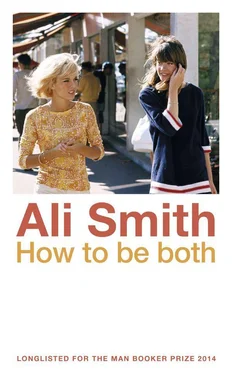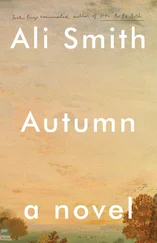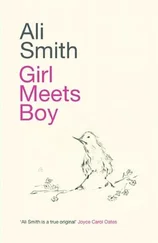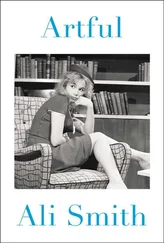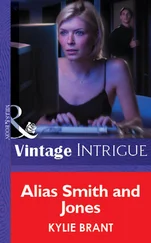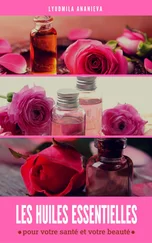What kind of a world, though, that has no horses?
What kind of a journey can you make with no creature to befriend you to let your going anywhere reveal itself as the matter of trust and faith going somewhere always is?
Now, when I bought my horse, Mattone, he had a stupid name, Bedeverio? Ettore? something from the stories of kings all the rage and everyone naming their children Lancelotto, Artu, Zerbino, and their horses too, by God: I bought him from a woman who had fields outside Bologna, I had a pocketful of money from the job I’d done and hitched a ride in a cabbage cart out to her fields: I saw him and I pointed him out, that one, I said, the one the colour of excellent stone, can I maybe try him? Oh he’s unrideable, she said, a thrower, worse than useless to me, he’s never let anybody, and when the slaughterer or the gypsies come he’s the top of the list: then that’s the one I want, I said and I pulled the money in a bag out of my pocket, out came green leaves from the cart with it and fell all at my feet and it seemed a good omen: so she went into the field and caught him, it only took an hour and a half, and she brought him in, he’d good feet, was clean-haunched, most of all had a curve from his back round to his flank that moved the heart (cause the heart is, itself, a matter of curves) and when I went to look at his teeth he let me put my hand in his mouth, oh he’s never let anyone do that before, the woman said, he’s bitten them all: so she saddled him, there was a furore of kicking and snorting when she did (and it wasn’t all the horse): but as soon as I was up and straddling him, and had got back on after he’d thrown me that first time in the woman’s yard, I sensed he heard what my hands and heels were saying and he understood I’d not do him harm, also from that first moment not just that I’d be for him a hostelry in a wilderness but that I would trust him to be the same for me.
So I bought him plus the tack he was wearing then and there, I hung on to his neck and leaned down without getting off (in case of difficulty of getting back on) and gave her the bag of coins, and on our way back to Bologna he only threw me the 3 or 4 times and always let me back on again without much disagreement, which was a civil thing in a horse unused to it: with my hands at the place in his neck where the warm skin folded and stretched as he walked (cause I couldn’t get him to go any faster than a walk unless he had a mind to canter, at which point he would canter as he wished and I’d let him, which is a trait I felt he liked in me) so by the end of our journey 2 things had happened, it had entered my head to change his name to a more workmanlike one that suited his colouring, and it had turned out he and I were friends, this horse whose eye was still clear, for all the ill-treatment at the hands of the woman or whoever had had him before (it did not say on his bill of sale and she would not sell me a guarantee and said she could not write to sign a paper) and I don’t, can’t recall, ever selling him on, so I must suppose I never had cause to.
Dead, gone, bones, horsedust.
In this particular ring of purgatorium I long right now for that smell of home, the smell of the horse I travelled the earth with and the horse who travelled it with me, with the dividing line of whiter hairs from his forehead down to the soft dark of his nostrils, cause he was a creature of symmetries and a reminder that nature is herself a bona fide artist of intent both dark and light.
Cause there was the morning when I was with the daughter of a man who’d no idea I was in the barn and his daughter there too, or that we’d been in there in each other’s arms warm all the cold night, and Mattone let me know, by taking my shirt which I still had on me in his teeth and pulling it up to let the cold air in then lipping me hard in the back, not just that it was first light but that the man was up and breakfasting and his workers were in the yard, and I’d kissed the girl and was on his own back and off at a canter across the fields before the sun had the chance to melt any more of the frost, from which adventure I was left bruised, yes, but from the swift activities of our love and the biting of my own horse not from the wrath of or blows from any father or his workers, and so with dignity through the birdsong.
The blackbird in the hedge now stops his song: he darts off out and up with a chirrup and flurry cause the boy shifts: he turns in towards me: he looks at me!
No: he looks through me: it’s clear that he sees nothing.
What I see for the first time is his face.
Most I see that round his eyes is the blackness of sadness (burnt peachstone smudged in the curve of the bone at both sides of the top of the nose).
It is as if he is a miniver that’s been dipped in shadow.
Then I see that he looks very girl.
It is often like this at this age.
The great Alberti, who published in the year in which my mother birthed me the book for all picturemakers, and wrote in it the words let the movements of a man (as opposed to a boy or young woman) be ornato with more firmness , understands the bareness and the pliability it takes, ho, to be both.
The great Cennini, though, in his handbook on colours and picturemaking, finds no worth and no beauty of proportion in girls, or in women of any age — except in the matter of hands in themselves, since the delicate hands of girls and women, providing they’re young enough, are more patient, he says, than those of a man, from spending so much more time indoors which makes them more suited to making the best blue.
Myself I went out of my way, then, to be expert at the painting of hands and be good at the grinding of blue and the using of blue, both: there were others like me, painters I mean, who could do my particular both: we knew each other when we saw each other, we exchanged this knowledge by glance and by silence, by moving on and going our own ways: and most anyone else who saw through the art of what some would call our subterfuge and others our necessity graced us with acceptance and an equally unspoken trust in the skill we must surely possess to be so beholden to be taking such a path.
In this way my father made sure of an education and an apprenticeship for me, though it maddened my brothers to be always what they considered his workshop serfs, like infidel workers compared to me they thought, carrying and working the stones and bricks that I sat and drew and calculated with, seeing to the shaping of the windows I then used as frames for seeing or sat below using the light of for reading a mathematical book or a treatise on pigments, protecting my hands.
I’m good at walls too cause I also learned from looking how to handle stone and brick and how to build a wall to last a lot longer than this one the boy is sitting on now.
But though I was descended from the men who’d made the walls which themselves made the municipal palace — the walls on which the great Master Piero in his stay in Ferara had painted for the Ests the victorious battle scenes
(and from looking at whose works I learned
the open mouths of horses,
the rise of light in landscape,
the serious nature of lightness,
and how to tell a story, but tell it more than one way at once, and tell another underneath it up-rising through the skin of it) –
I would paint my own walls .
So my father, when I’d trained to what he thought enough degree (which was not until I’d seen 19 summers) and news reached him that there was a need for someone to provide 3 pietà half-figures and a quantity of painted pillars to the side of the high altar in the cathedral, went out into the wet night with works of mine rolled up under his arm wrapped in treated skins to keep the rain off and showed the priests how I could with colours turn plain stone to what seemed marble column: the priests, who’d seen me many times in my youth with him and my brothers, gave me the job and paid us good money: by both luck and justice we all benefited and I did not formally leave my father’s tutelage till 3 years before he died, old father, old wallmaker, by which time I had come of age, was full grown, had been binding my chest with linen for a decade, not too difficult being slim and boylike then, and had been visiting the house of pleasure with Barto for nearly as long, where the girls taught me both binding and unbinding and some other useful ways in which to comport myself.
Читать дальше
